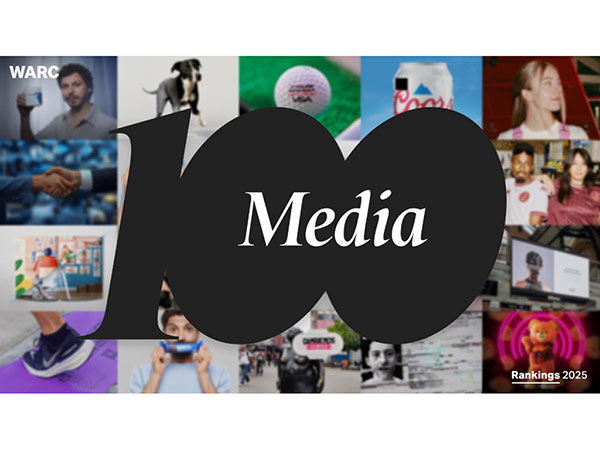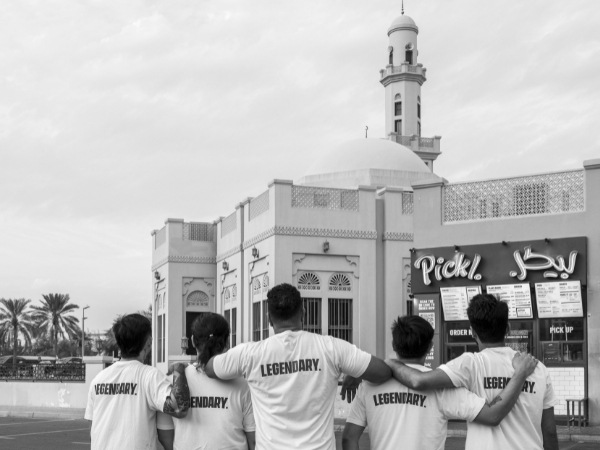News - Advertising
Business promotions under Covid-19: A perspective from Qatar by llhem Allagui
August 27, 2020

Smart business solutions have been the mainstream response to COVID-19, particularly in countries with advanced technological infrastructure. Qatar has an Internet and social media penetration rate of 99% each and a mobile penetration rate of 152% (as of Jan 2020, and excluding the transient labor force). The smartphone is the preferred device to access the Internet (91% access the Internet on mobile vs. 49% on laptop or desktop), and the majority of people use either WI-FI (81%) or mobile data services (70%). These affordances have enabled businesses to offer a quick and smooth transition to online transactions and prompted users to safely and conveniently pivot to online commerce.
In non-crisis times, businesses promote products and services, address consumers' needs and inquiries, raise awareness about new products, share news and information, offer assistance post transactions, or engage with their audiences. In times of crisis, businesses appreciate the crisis’s impact on consumers. They identify new priorities and may shift their business models to address the short term needs of their audiences. COVID-19 has been an emergency context. Although ‘food and groceries’ is the least sought-after e-commerce category according to a 2019 Ministry of Transport and Communications’(MoTC) e-commerce survey, some people have opted exclusively for online shopping, not leaving their houses for months now. Others have combined online and in-person shopping, or continued in-person shopping largely for groceries and products of necessities. Whatever preferences people have, they have been able to choose the personalized shopping experience that suits their needs.
Search trends in Qatar under the COVID-19 pandemic
It is no surprise that online shopping has seen an increase in interest among users. For instance, in the delivery category, the search for the word Talabat (a local delivery service) on Google has increased 600% between the end of February and the end of July 2020. The keyword searches for Monoprix Qatar delivery and Carrefour Villaggio have increased by 250% and 200%, respectively. In the food and drink category, McDonalds Qatar increased 450%, pizza dough recipe increased 450%, Starbucks 250%, and KFC 160%. In the retail category, Fnac online has increased by 550% and Adidas Qatar online 400%. As for entertainment, the search for Netflix party increased 800%, and Netflix login 650% for the same period while Shahid, MBC’s Arabic streaming service, increased only 70%. Streaming services have a modest penetration rate in Qatar, according to Northwestern University in Qatar’s media use survey. In 2019, only one in five persons answered that they use Netflix (21%) or Shahid (20%) compared to about four in 10 persons that go to the cinema (2018).
Naturally, the fact that the word search Netflix party or Netflix login has increased does not mean that more people have used the streaming service. Still, it is an indication of interest among audiences in collective watching at a time of social distancing from friends, dates, and parties, to get through COVID-19. According to YourStory media, by mid-April, over eight million users have used Netflix party within only a few weeks of its launch. While the coronavirus pushed people away from each other, Netflix brought them back together, albeit virtually. The company reinvented a service and found a new value to provide viewers.
Branded content: A mainstream promotional strategy under COVID-19
Keeping with the viewing experience, Novo Cinema Qatar for instance, continued to engage the audiences with questions, tags, and comments, as well as social distancing posts and promotional offers. Vox Cinema made their snacks available for delivery, and with Novo, used social platforms to reiterate public health messaging about self-distancing and staying home. Branded content included suggestions for top dramas that viewers might want to watch and some other useful information about movies and new experiences with snacks.

Vox Cinema Instagram ad for snack delivery

Vox Cinema Instagram branded content
Some other businesses gave away free content. For example, mirroring practices adopted in other countries, yoga and dance studios offered free online classes. The public library made available books and resources to subscribers. The Doha Film Institute (DFI) has organized online chat sessions about prize-winners and thought-provoking movies that audiences can join online. The DFI pointed to links where the films can be viewed and assigned a date, time, and zoom link for users to join a group discussion. For all these types of branded content, the value is not in the freebies distributed or the promotions customers can get, but in the useful content made possible and that audiences can engage with in order to learn or be entertained.
In the retail sector, grocery stores and pharmacies benefitted from an exceptional nonclosure plan. Their adjustments to the COVID-19 crisis include extending or adapting their opening hours, in addition to offering delivery services. Delivery has been the most common and visible business model adaptation across sectors, including hospitality. Four and five stars hotels began offering delivery packages, especially towards the month of Ramadhan, one of the busiest dining seasons for hotels in Qatar. Iftar packages were booked and distributed by luxury hotels such as the W or the Ritz Carlton in high-end packaging to reproduce the luxury dining experiences those hotels typically offer. Promotions have circulated on social media, and particularly Instagram. Many Doors One W2Go is a campaign run by the W Hotel and features a female character who comes out of a luxury car, she knocks on doors of people of different backgrounds handing them branded delivery packages of sweets, sushi, and other specialties. The closing frame of the video ad includes WhatsApp and landline line numbers. It is interesting to note here the consistency of brand positioning. A luxury brand does not turn to bike delivery, but luxury has to be visible to the customers through both the order and delivery channels. Choosing a female as a delivery character is atypical in itself; the majority of delivery services symbolize delivery as a male business. In the W Instagram ad, the female is not seen driving the car but stepping out of it and knocking on doors. She is not the hostess standing at the restaurant door anymore, now she goes to the customers’ homes and delivers their food. In Qatar, there is no unease about intrusive privacy for brands using WhatsApp to interact with customers. With more than eight out of 10 people using the app, WhatsApp is the first social platform used in Qatar, and it is no surprise that brands of all sectors, including hospitality, reach out to their customers on this platform.
About care and empathy in business
Care in business is multidimensional. Companies care about their business, profitability, employees, brand name, customers, stakeholders, and beyond. Concentrating on brand promotional strategies, as it is the focus of this article, it is safe to say that brands have attempted to show care for customers in several ways. First, a number of brands joined the government's efforts to raise awareness and amplify its voice with public messages about staying home, social distancing, washing hands, and so on. Museums, retailers, hotels, media, and beyond reproduced public health messages on their owned platforms. Several countries turned to social media influencers early on to amplify the reach of their health messages, including the Canadian Prime Minister, Finnish President, and Mayors of several states in the US. In Qatar, influencers' voices were called on to help when the government made the Ehteraz application mandatory. Social media influencers spoke about the security of the app and reiterated the government's narrative concerning updates that were intended to maximize people's privacy.
In the household telecom market, critical voices tired of the blocking of video apps in Qatar have sparked a public conversation that points to little care regarding consumers. On July 15, Ooredoo announced that it has adapted measures to ensure increased service connectivity access on its networks, evidence of business care and attentiveness to the needs of its customer base. It also announced an increase in the duration of phone calls which lasted on average twice longer than before the pandemic, an increase of video calls by 11,000%, and five times more gaming than before the pandemic. Peninsula Qatar reported users' complaints with regards to the blocking of WhatsApp calls, videos, and other platforms––especially Houseparty––which had inundated the social networks. In early April, Houseparty was banned in Qatar, after thousands of people relied on it to maintain contact with family and friends abroad during the COVID-19 crisis. Ooredoo said that this was out of the company's control, and the Ministry of Transport and Communications issued a statement justifying the ban with a narrative about protecting the population from fraudulent privacy manipulations.
E-commerce has suffered such fraudulent manipulations that have attempted to take advantage of the rise of online transactions under the coronavirus pandemic. This threat to the local e-commerce sector, still nascent with its 12% market share (MoTC 2019 survey), is not new; it prompted the MoTC to launch a new e-commerce gateway in Oct. 2019, Theqa, as well as an e-commerce licensing code to safeguard and regulate online commercial transactions. The Ministry of Interior (MoI) joined those efforts by launching a public service campaign educating people about security when transacting online.

MoI Twitter ad about the privacy of Information
Whether they have suffered from the economic impact of the pandemic or have profited, the majority of businesses’ tactics have been reactive to this unforeseen situation; now, the question is what have businesses learned and how will they think proactively to prepare for a possible next crisis?













